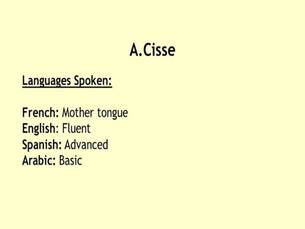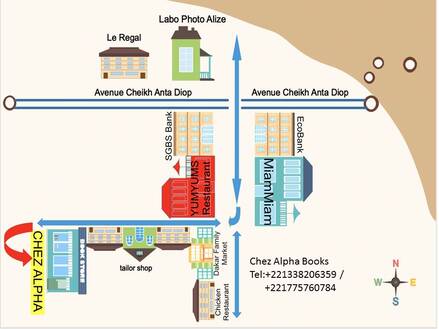Students often do not realize that the university experience will not be the same as secondary school or lycée. In reality, it was never meant to be the same. In addition, many students I meet with are extremely studious yet sometimes lack the soft skills that are also needed to transition effectively into the university particularly if their goal is to study abroad.
With a focus on grades, grades and only grades families often forget to take the time to encourage the development of a variety of additional skills that will be called upon to surpass both minor and major issues in the university in order to succeed.
Recently, when consoling a student who was struggling academically all he could repeat over and over is that he had received a 15 on his Bac. As we sat down to review the first semester, he admitted that since arriving at the university he had failed to ever raise his hand in class and participate in discussions, yet participation was 10-20% of the grade. His response was that he had seldom raised his hand in lycée either. In addition, he was unable to deem the importance of working in study groups and resented group projects feeling that he should only be judged on his individual efforts. He had never participated in one activity outside of class preferring to return straight to his room and study, study, study. From his perspective, extra-curricular activities were a waste of time as they did not provide a grade. He insisted that he was writing down everything the professor said, but I countered with the importance of his doing a note taking workshop as the goal is not to write down everything but to capture the core information. Also, his parents phone calls and emails encouraged him to not do anything but study! Most important, thrown into a diverse community he was unable or unwilling to make new friends as his words consistently echoed Dorothy from the Wizard of Oz as he lamented, “there’s no place like home.” He admitted to having problems arrange his schedule and we talked about supporting him on developing time management skills. Admittedly in a prior world, his parents and teachers arranged all of his time, so he lacked the abilities to manage time effectively. His response to not being able to manage time was to study all day, every day. My insights and bits of encouraging advice that had been offered earlier in the semester had been viewed with shock and horror until – he failed his first semester.
After receiving his first semester results, this same student arrived to meet me filled with remorse, embarrassment and confusion. I started by reminding him that many students struggle the first semester as it is a major period of academic, social ad cultural adjustment. He reminded me, as I knew he would, that he received a 15 on his Bac. I reminded him, as I had done before, that transitioning from secondary school to the university often required the acquisition of new and additional skills. We took the time to discuss the importance of his developing collaborative skills and being able to work as a team member and how this would help him with the group projects. We addressed the importance of participating in class and how this would help the professor and his fellow classmates get to know him better and also, he would be actively engaged in the course and not just a note taker. We reviewed the importance of participating in the numerous extra-curricular activities available as depending on what he selects he could develop leadership skills, career development, mentoring experience, a greater focus on life balance including health and wellness, along with an array of additional skills for his resume. I challenged him to take baby steps out of his personal world and get to know the other students regardless of their nationality, country of origin, etc. We discussed how the university experience was preparation for the professional world and that world will most likely be international so on campus he had the incredible opportunity to experience professors, fellow students, food, music, films and ideology from around the world. However, foolish it may have sounded I reminded him that he wasn’t just there to chase grades. I told him it is the actual knowledge and experience that would last a lifetime and carry him effectively into his career.
In response to some of my feedback he looked at me with shock, but I know he heard me. It has been three weeks since we talked but I see a small difference. He is now taking those first steps into a greater awareness, and I am certain he will succeed.
I encourage parents and teachers to re-direct or at minimum balance a student’s perspective of what it will take to succeed in college. Encourage their curiosity and a desire to experience higher education in and out of the classroom as a full experience. Most important, let them know there may be struggles but as parents they will be there to support them, and that the campus should have an array of resources to support him as well.
Team work, collaboration, communication abilities, time management and leadership skills are just some of the many soft skills that students need to develop to succeed in the global workforce. It is here, in my experience, that student who arrive at the university with a 10 on their Bac result or a 15 become equals. As Alvin Toffler said, “The illiterate of the 21st century will not be those who cannot read and write, but those who cannot learn, unlearn, and relearn.” Let’s teach. model and encourage students to rely not solely on who they were in the lycée/secondary school or the grades they earn but to learn, unlearn and relearn new skills and competencies inside and outside of the classroom and possibly redefine success.











 RSS Feed
RSS Feed
